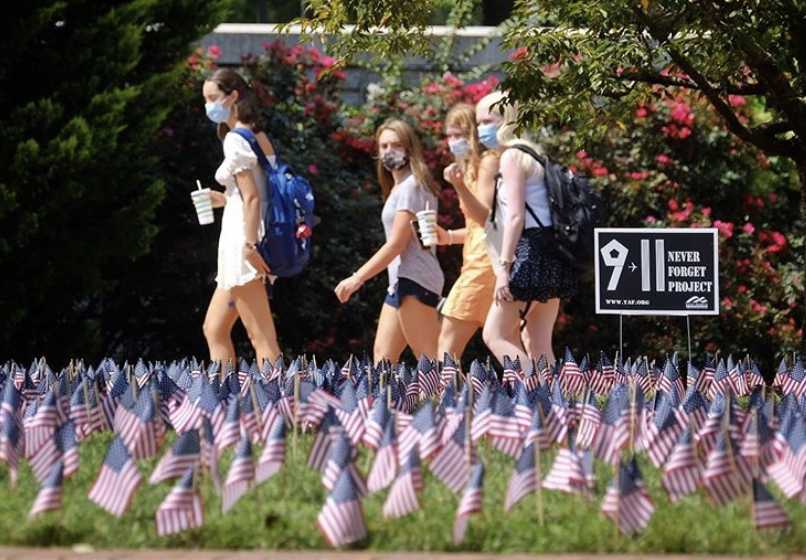
This year I watched a series of morning shows and programs that had aired on Sept. 11, 2001 and had captured that horrific morning. The purpose of my viewing was to feel the shock and awe of the event as if it had just happened.
But as each of the broadcasts were interrupted by the news of the attacks, I found myself more interested in the lead-up than the actual live coverage of the events of 9/11. They left me with a unique impression. I could not help but finish each video thinking of the decades before the attack, and the pervasive sense of optimism that seemed connected to it.
Perhaps I reasoned that the decades before were a comparatively happier period of history because I thought of what was to come — all the struggle and pain of this year and also of the perpetual aftermath of the attacks; how the national media would transform; how far the sense of American security had fallen. I began to cherry pick every failure of the post 9/11 era and uphold the world that was before. Even as I unfairly judged this transformation of our country — ignoring virtually all good that occurred after 9/11 and all of the atrocities committed before — I still returned to the attacks every time and found them radically different from anything ever captured on television before that moment.
The composite footage of the crash has always been an unbearably terrifying fact to me. I favor the live news coverage over the amateur footage. To watch videos recorded by onlookers on the street of such a catastrophe is extremely dislocating.
In history, there are usually only words to describe the destruction of a city — now you can watch the death of thousands of people from a dozen angles, from a dozen live news feeds. Even more horrible are the images and videos of the workers jumping from the towers. Never had American citizens felt so helpless. There wasn’t a thing anyone could do to help them. They could only watch as the victims of this senseless tragedy made it to the windows and waved for help that would not come.
You may watch these videos and look at these pictures and still feel shock. The collective and rightful censorship of such information is the reason for this authentic feeling. The sensitive sharing of these videos and photographs have reserved a space of American history for mournful observers, and thankfully not for those who wish to belittle or mock the profound pain suffered in the content.
As citizens, we all have a duty to place ourselves in the position of those first responders.”
Today, the effects of 9/11 reverberate in America. We have been attacked many more times. Soon, the video footage of 9/11 has been accompanied by those of other terrorist attacks like the Boston Marathon bombing, and citizens of other countries have become victims of insensible public tragedy. As a nation, we became focused on the prevention of another 9/11. The trauma we endured became the fuel for the longest war in United States history that is still ongoing.
Immigration policies have been tightened and are now a focal point of the current presidential administration. Surveillance of all citizens has reached an all time high through the creation of the TSA and the strengthening of the NSA via the Patriot Act. Yet even with these preventative measures, we feel unsafe. And now as you visit CNN, or turn on the news at any time, you quietly watch the calamities in every state of the country, and in every country of the world.
Catastrophe sells. The drive of the national and world media is to gather attention, and this can sometimes be an altruistic goal. The citizens of the United States should always return to the tangible memories of Sept. 11, 2001, and learn from them.
The dominant media corporations of today must realize the horror that pierced the heart of every American on 9/11, no matter who they worked for or what job they did, and find empathy for everything that is happening to ordinary people today.
As citizens, we all have a duty to place ourselves in the position of those first responders and decide whether we will feel and act, or stand and watch.














